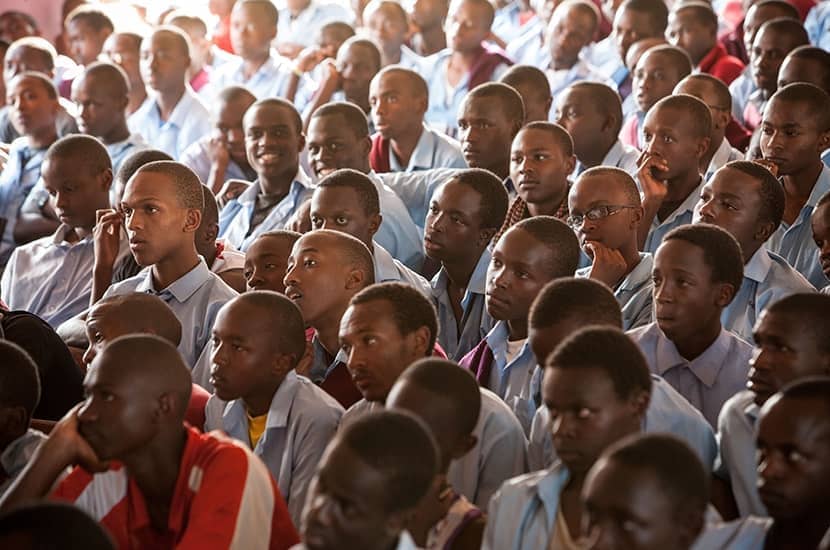Demographers are attached to their theories. The field’s most enduring is the ‘demographic transition’, whereby modernisation inexorably lowers a society’s once-high fertility to replacement rate. Unfortunately, reality is obstreperous and doesn’t always obey the rules.
The United Nations Population Division bases population projections on the assumption that all countries will eventually follow the pattern of plummeting birth rates first observed across the West. Edward Paice’s Youthquake addresses the exception so far: Africa. The continent is hardly a minor asterisk. Although for many regions demographic forecasts for this century have been ratcheting downwards, in the past 20 years the UNPD has had to revise its median-variant forecast for Africa by 2050 upwards by nearly 40 per cent.
Paice’s text is heavy on statistics, but his goulash of arithmetic is easy to digest, as well as spiced with plenty of numerical eye-poppers. (Given China’s horrific leadership and unnerving geopolitical ambitions, I was cheered by the fact that its population is on track to subside from a peak of 1.5 billion to a mere 500 million by 2100 — just deserts for a mercilessly authoritarian one-child policy.) What provides this book its urgency is the UNPD’s confident forecast that Africa’s population will double by the mid-century to 2.5 billion. At 400 million strong, Nigeria will then overtake the US to become the world’s third most populous nation.
The UNPD’s median-variant projection for 2100 is shakier, of course, for the further out demographers forecast, the more notoriously unreliable their statistics prove: stuff happens, and fertility rates can wane with surprising alacrity. Nevertheless, Africa has a fantastically young age structure. By 2050, Africans under the age of 24 will be as numerous as today’s Africans of all ages. Thus, give or take, the continent’s population by the end of the century is also a certainty: around 4.3 billion.
By the mid-century, Nigeria will overtake the US to become the world’s third most populous nation
At that point, its peoples are expected to constitute 40 per cent of the planet’s humanity.








Comments
Join the debate for just £1 a month
Be part of the conversation with other Spectator readers by getting your first three months for £3.
UNLOCK ACCESS Just £1 a monthAlready a subscriber? Log in